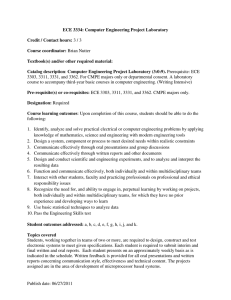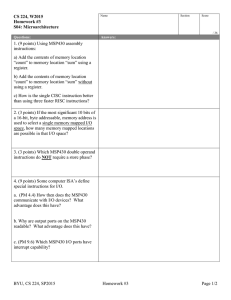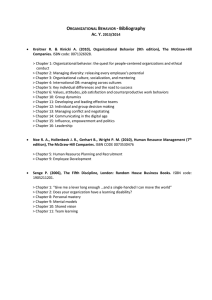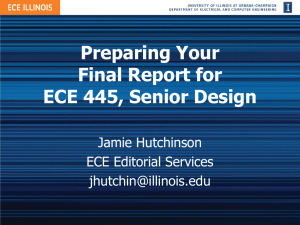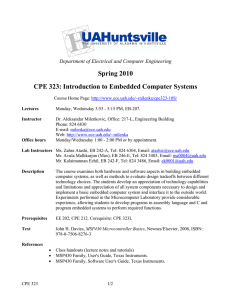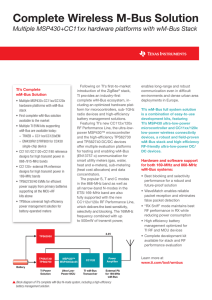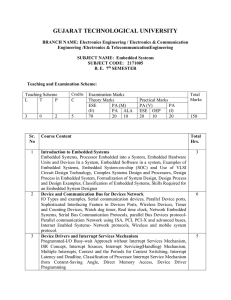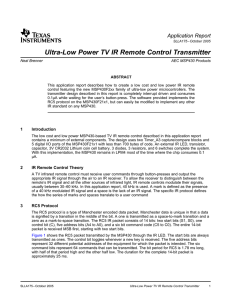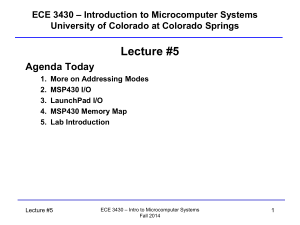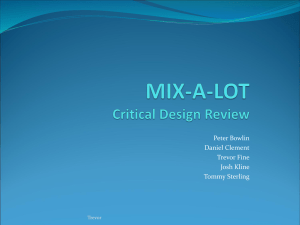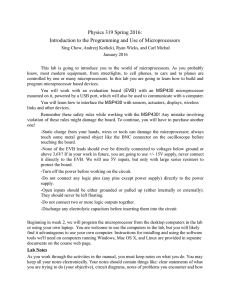ECE 3332: Project Laboratory II Credit / Contact hours: Course coordinator:
advertisement
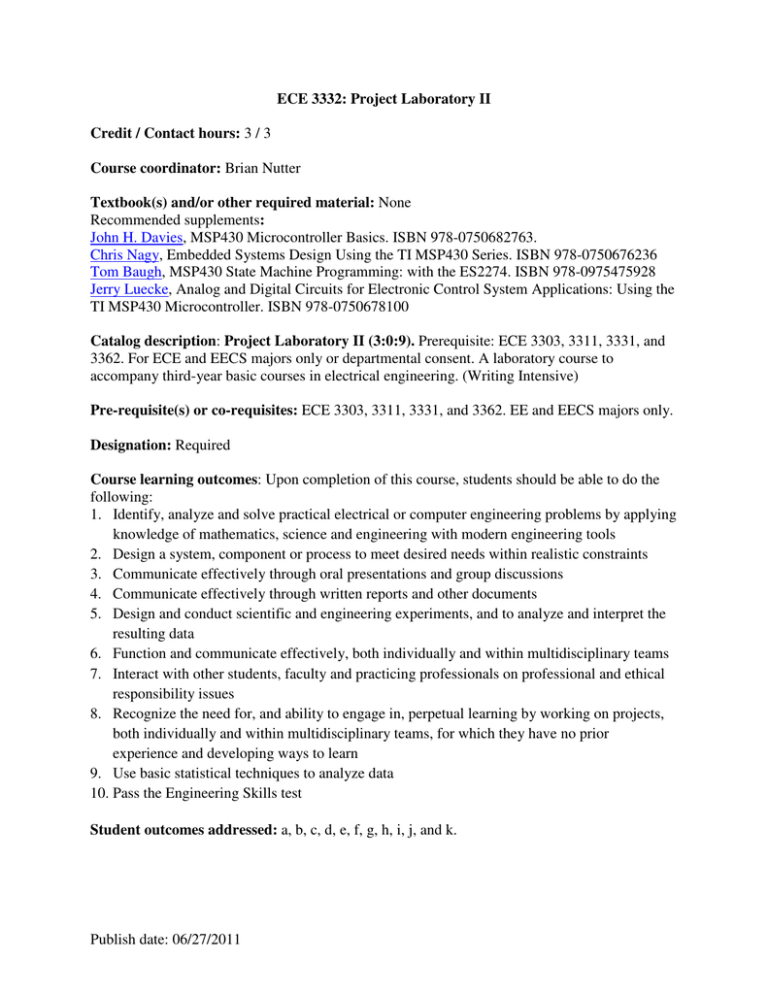
ECE 3332: Project Laboratory II Credit / Contact hours: 3 / 3 Course coordinator: Brian Nutter Textbook(s) and/or other required material: None Recommended supplements: John H. Davies, MSP430 Microcontroller Basics. ISBN 978-0750682763. Chris Nagy, Embedded Systems Design Using the TI MSP430 Series. ISBN 978-0750676236 Tom Baugh, MSP430 State Machine Programming: with the ES2274. ISBN 978-0975475928 Jerry Luecke, Analog and Digital Circuits for Electronic Control System Applications: Using the TI MSP430 Microcontroller. ISBN 978-0750678100 Catalog description: Project Laboratory II (3:0:9). Prerequisite: ECE 3303, 3311, 3331, and 3362. For ECE and EECS majors only or departmental consent. A laboratory course to accompany third-year basic courses in electrical engineering. (Writing Intensive) Pre-requisite(s) or co-requisites: ECE 3303, 3311, 3331, and 3362. EE and EECS majors only. Designation: Required Course learning outcomes: Upon completion of this course, students should be able to do the following: 1. Identify, analyze and solve practical electrical or computer engineering problems by applying knowledge of mathematics, science and engineering with modern engineering tools 2. Design a system, component or process to meet desired needs within realistic constraints 3. Communicate effectively through oral presentations and group discussions 4. Communicate effectively through written reports and other documents 5. Design and conduct scientific and engineering experiments, and to analyze and interpret the resulting data 6. Function and communicate effectively, both individually and within multidisciplinary teams 7. Interact with other students, faculty and practicing professionals on professional and ethical responsibility issues 8. Recognize the need for, and ability to engage in, perpetual learning by working on projects, both individually and within multidisciplinary teams, for which they have no prior experience and developing ways to learn 9. Use basic statistical techniques to analyze data 10. Pass the Engineering Skills test Student outcomes addressed: a, b, c, d, e, f, g, h, i, j, and k. Publish date: 06/27/2011 Topics covered Students, working together in teams of two or more, are required to design, construct and test electronic systems to meet given specifications. Each student is required to submit interim and final written and oral reports. Each student presents on an approximately weekly basis as is indicated in the schedule. Written feedback is provided for all oral presentations and written reports concerning communication style, effectiveness and technical content. The projects assigned are in the area of development of microprocessor based systems. Publish date: 06/27/2011
